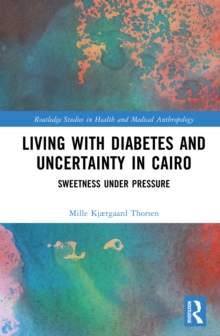
Childlessness in Bangladesh : Intersectionality, Suffering and Resilience PDF
by Papreen Nahar
Part of the Routledge Studies in Health and Medical Anthropology series
Description
This book examines the intersectionality and stratified lived experience of rural poor and urban middle-class childless women in Bangladesh.
Childless women in Bangladesh, an over-populated country where fertility control is the primary focus of health policy, are all but non-existent. Papreen Nahar offers an alarming account of stigma, abuse, ostracism and violence against these women, sharing their experiences of marginalisation in a culture that idealises motherhood. In such a reality, the experience of childlessness, particularly for women, can be much more severe than what is defined as 'infertility' in the biomedical sense. As childlessness is a complex interaction between biology, society and culture, the book illustrates the ways in which infertility transforms a health problem into social suffering. Although Bangladeshi childless women are systematically excluded by various structural forces, it appears they do not succumb to their circumstances; rather, they develop resilience and agency to become survivors of their new, albeit bleak, lives.
The volume will be of interest to scholars working in anthropology, reproductive and women's health, global health, gender studies, development studies and Asian studies.
Information
-
Download - Immediately Available
- Format:PDF
- Pages:228 pages
- Publisher:Taylor & Francis
- Publication Date:21/09/2021
- Category:
- ISBN:9781000452457
Other Formats
- Paperback / softback from £39.99
- EPUB from £35.99
- Hardback from £135.00
Information
-
Download - Immediately Available
- Format:PDF
- Pages:228 pages
- Publisher:Taylor & Francis
- Publication Date:21/09/2021
- Category:
- ISBN:9781000452457










